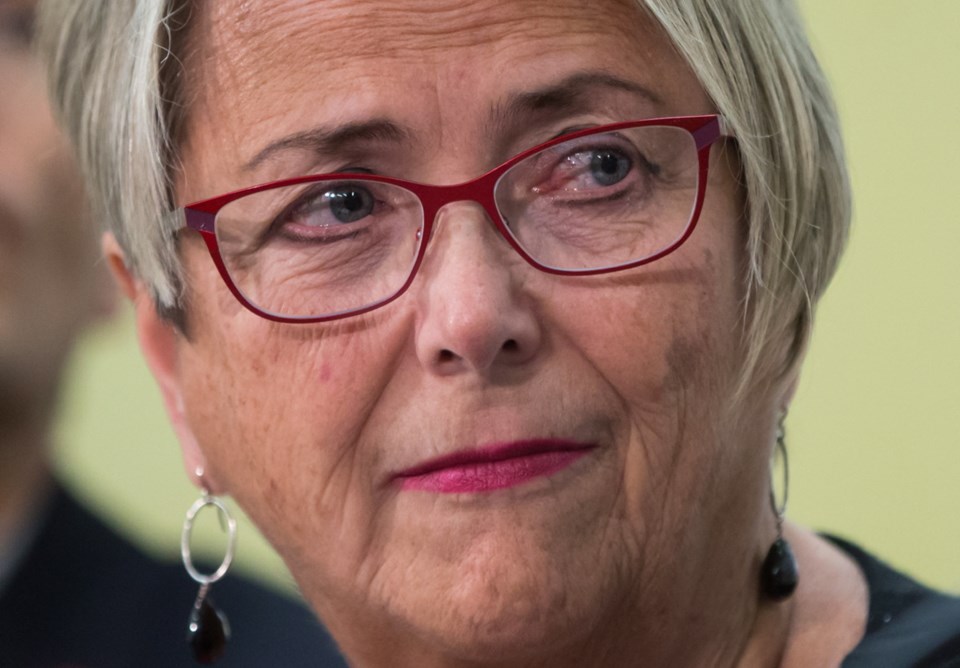B.C. has announced $20 million over three years for First Nations communities struggling with the drug-overdose crisis that’s disproportionately affecting Indigenous communities.
The funding will be administered by the First Nations Health Authority, which delivers services in partnership with First Nations communities. It is part of $322 million announced in last September’s budget update.
About 1,400 people died of illicit drug overdoses in the province last year, according to the B.C. Coroners Service.
Indigenous people are five times more likely to experience an overdose than the general population and die at a rate three times greater, said Judy Darcy, minister of mental health and addictions.
“It’s the worst public-health emergency we’ve experienced in B.C. in decades,” Darcy said Thursday at a news conference in Vancouver.
“Every single death to overdose leaves families, friends and communities in unimaginable pain. Our government is focused on trying to stem the tide of this overdose emergency.”
The $20 million will be delivered over three years — $4 million in 2018-19 and $8 million the following two years.
Dr. Shannon McDonald, the health authority’s chief medical health officer, said 55 projects have been approved. The funding will provide a range of supports including expanded access to the overdose-reversing drug naloxone, more treatment options for people struggling with addiction in remote communities, and “back-to-the-land” therapeutic camps.
The Vancouver Island Heath Authority region will receive about $475,000 in grants in the next year for projects that could include workshops and training events.
There is no single way to respond to the overdose crisis, McDonald said.
“These funds will be used in a variety of ways to meet people where they are at on their journey,” she said.
FNHA delivered naloxone training in 126 communities and wants to increase that to 203, McDonald said.
About 85 First Nation centres are registered to provide naloxone kits and the FNHA wants to increase that as well, she said. The health authority is working to increase access in rural and remote communities to all of these services.
Data from the B.C. Patient Safety and Quality Council has provided the health authority with some understanding of the issue from drug users’ point of view, McDonald said.
“They talk quite clearly about trauma in their lives and racism as barriers to them accessing treatment. We need to change that.”
Many of the addiction issues among Indigenous people on and off reserves are rooted in trauma, she said.
“We have a pain problem, not a drug problem,” she said, adding families are grieving loved ones who died from “a poisoned drug supply.”
Grand Chief Doug Kelly, chairman of the First Nations Health Council, agreed. “Our people are deep in pain,” he said.
The funding and action plan signal a way forward, allowing First Nations communities to design their own initiatives and helping treatment centres to deliver better services and create more effective partnerships, he said.
Kelly expressed his condolences to everyone who has lost a loved one to a drug overdose.
“Those deaths are preventable,” he said. “Those deaths are an outcome of pain.”
— With a file from The Canadian Press



